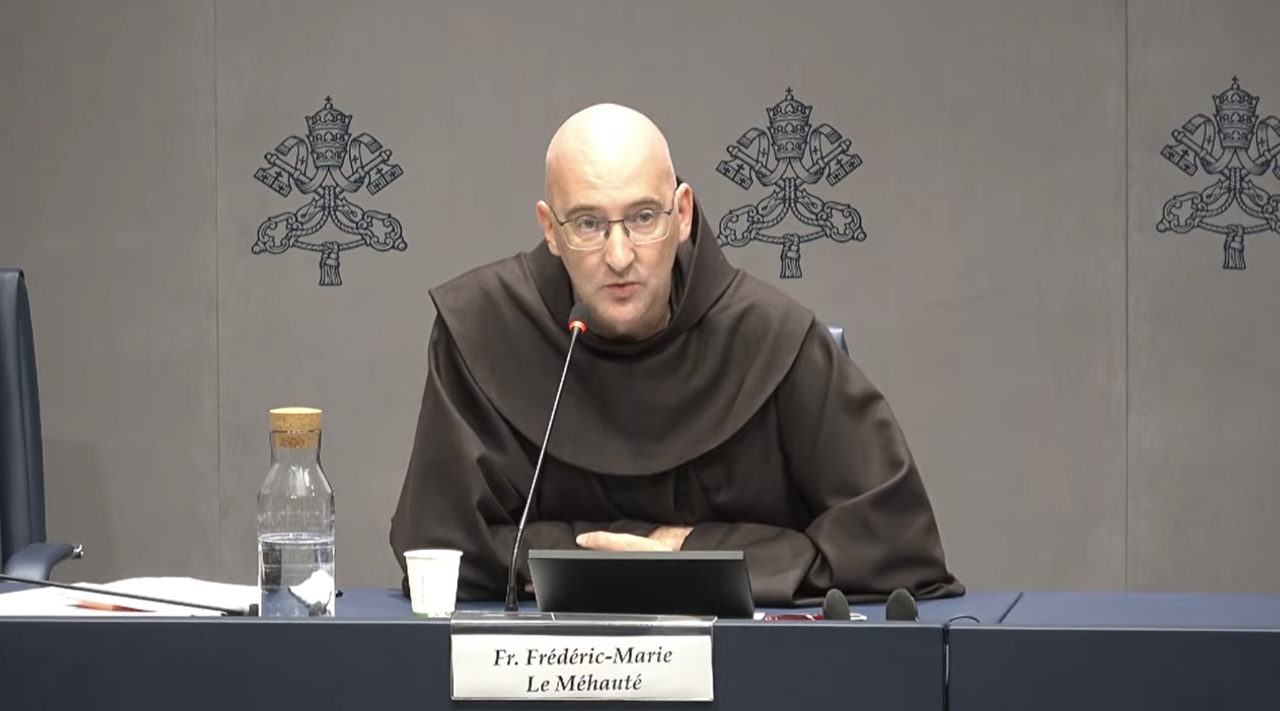Frédéric-Marie le Méhauté OFM speaks to Vatican News about Pope Leo’s new apostolic exhortation on love for the poor.
By Joseph Tulloch
Pope Leo XIV has published his first major magisterial text, Dilexi te (‘I have loved you’), an apostolic exhortation on love for the poor.
The text, begun by Pope Francis and now completed by Pope Leo, was presented on Thursday at a conference in the Holy See Press Office.
Among the presenters was the Franciscan friar Frédéric-Marie le Méhauté, a professor of theology in Paris, and Provincial Vicar of the Province of France and Belgium for Order of Friars Minor. He spoke to Vatican News about the apostolic exhortation.
Q: Could you tell us a little bit about this new encyclical? What are some its main themes?
A: The main theme is, as the subtitle explains, love for the poor. But not only loving them – how we love them, how we work with them. How do we read the Gospel with them? How do we build society not only for them, but with them? How do we make it clear that poor people are central to the Church?
These are topics which were very dear to the late Pope Francis, and as we know the new exhortation was a collaborative effort, written by both him and Pope Leo. What in this document continues the magisterium of Pope Francis, and what’s new?
I would say it’s very difficult, almost impossible, to say whether a sentence in the Exhortation is from Pope Francis or from Pope Leo. One of the great things about this text is that it’s very consistent – there’s a great continuity between the two popes. We cannot say that this is the final text of Francis’ pontificate. It’s a joint text, and in my opinion, it’s also a kind of programme for Leo’s pontificate.
What are some of the highlights of the document?
I think the theological analysis of our commitment to the poor is very important. We sometimes think: OK, I go to church, I like Jesus, I go to Mass and, in order to be a good person, I need to help the poor. In other words, we see the commitment to the poor as a consequence of our faith.
Pope Leo teaches us here that our commitment to the poor, living with the poor, living like the poor, is the place where we receive Revelation, where we receive the Gospel. There’s no other place to do that, other than through our encounter with the poor. For me, this is very, very important. I do not care for the poor because I’m Christian. Firstly, I care for the poor, and then I receive Revelation. Only then do I come to know who the true God is.
You yourself, as a Franciscan, have taken a vow of poverty. How does that vowed, or chosen, poverty differ from the poverty that many people suffer against their will every day?
I had a very important experience when I was a young friar. I went to work with a group of homeless people, and I introduced myself as a religious. Afterwards, a man came up and asked me what that meant. I explained that it’s someone who has taken vows of chastity, obedience and poverty. He grabbed the back of my neck and said: “Don’t tell me about poverty; you know nothing about it”.
For me, that was a very powerful experience, which is still very present in my life and in my theological work. I work with poor people, but I do not know what their life is like. I do not know the reality of sleeping under a bridge, or having an empty stomach. I really don’t. So I need to listen to them, so they can explain their life to me, how they read the Gospel.
For me, ‘chosen’ poverty is something different. It’s a way to approach people without power, with empty hands.
You mentioned earlier that there’s a sense in which Christians are called to live like the poor. What does that mean, and how do we do it?
Well, to be honest, I don’t know what that means. For me, it’s a kind of direction, a kind of unrest in your life. It means not closing yourself off to focus on your own relationships, your own money, and so on. Someone recommended always keeping a broken glass in your apartment, just to remind you that there is somebody sleeping and living outside. If we live with this lack of tranquility, we will be able to take advantage of occasions to meet people, walk with them, and be led by them.
We could go to the poor to teach them something. And perhaps we can teach them something – help them understand the Gospel, and so on. But we also need to go to them with the realisation that we don’t know everything. We need to ask them what they know that we don’t. To ask them to explain how they see life, how they see the Gospel.
Final question: what is the one thing you would like people to take away from the from the Exhortation?
Do not be afraid of the poor. They can give you the true Gospel.
The above transcript has been edited for style and brevity.


